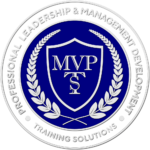The statement by Dr. Coughlin, “Hard skills can get you the job, but it’s soft skills that turn that job into a career,” captures the core of what separates temporary success from long-term professional contentment in the ever changing field of career development. Fundamentally, the remark emphasizes the important difference between soft skills, which include leadership, interpersonal, communication, and emotional intelligence, and hard skills, which are technical and job-specific proficiencies.
The first step into the working world is acquiring hard skills. They are the measurable skills and knowledge that qualify a person for a certain position. Employers often look for hard skills in possible applicants; they might be technical expertise, specialized knowledge, or task-oriented qualities. But the phrase implies that these abilities are not enough for long-term professional advancement on their own.
Soft skills, on the other hand, are the intangible attributes that help people work well with others and negotiate the workplace’s difficulties. These include leadership, empathy, collaboration, communication, and flexibility. Soft skills are what make a professional stick to their function and company, turning a job into a long-lasting, meaningful career. These are the interpersonal skills that allow for productive relationships, effective leadership, and the development of a pleasant work environment.
Transitioning from a job to a career is a complex process. Although hard talents might help get a job, developing and using soft skills is more important for long-term success, upward mobility, and professional happiness. The ability to overcome obstacles, form deep connections, and adjust to the ever-changing environment of the workplace are all made possible by soft skills, which serve as the driving forces behind professional growth.
The quote from Dr. Coughlin also suggests that job advancement calls for a comprehensive approach to both personal and professional development rather than only technical skill. Soft skills are becoming more and more important as people go up the employment ladder. A well-rounded skill set, including both hard and soft skills, is highly valued by leaders and decision-makers because they understand how important collaboration, emotional intelligence, and effective communication are to long-term success.
The quote basically acts as a reminder that, while hard talents may help one get a job, developing soft skills is what makes a job into a long-lasting and meaningful career. While both skill sets are necessary, long-term professional success and fulfillment are achieved via the skillful fusion of technical proficiency and interpersonal grace.
MVPTS STAFF
